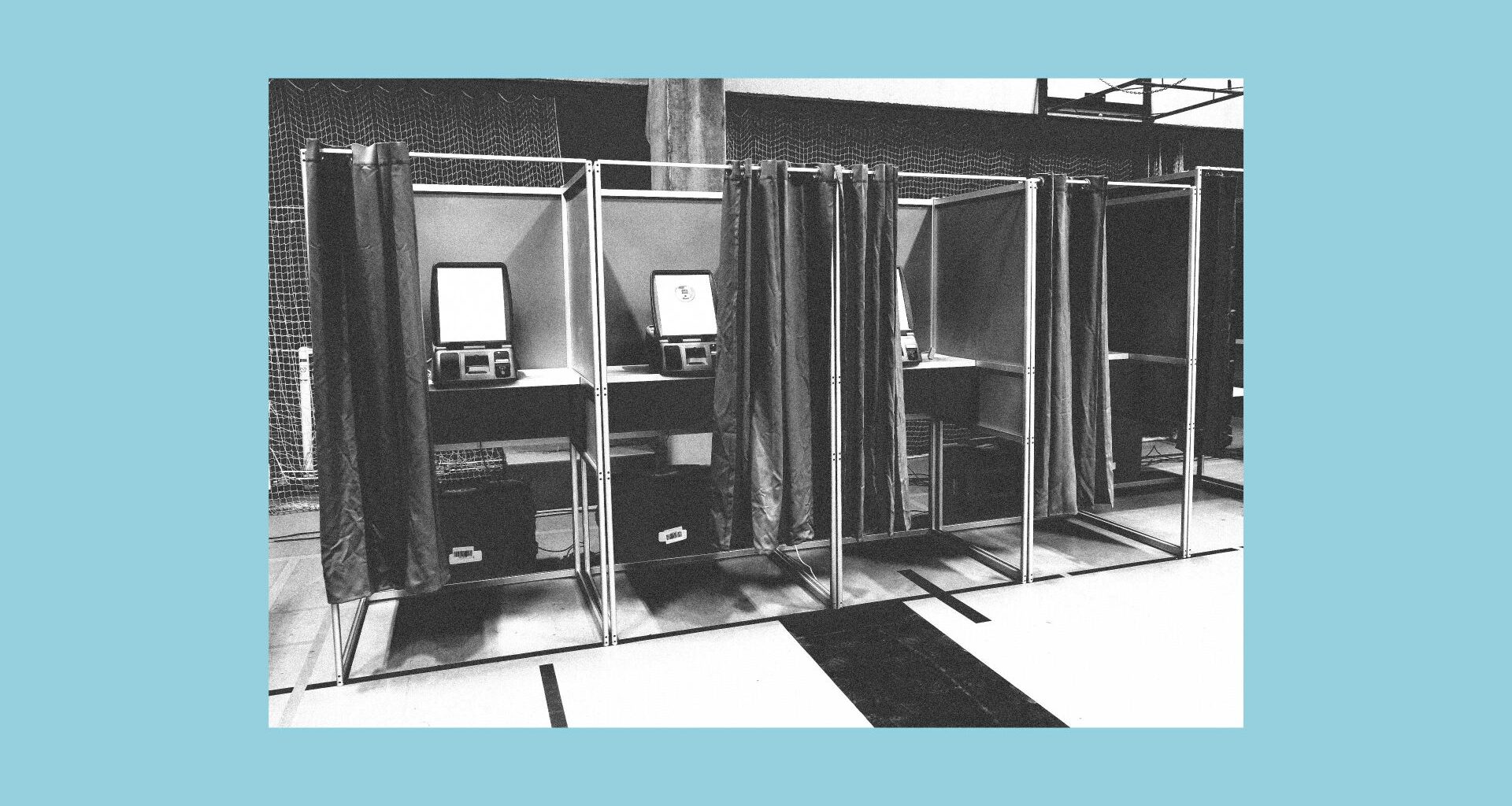It used to be that the whole country would have to collectively drag itself to a nearby drab building – almost always a school – between the hours of 9am and 4pm on a Sunday every few years to cast their vote.
But last week, for the first time since 1894, some of the country was relieved of that duty after Flanders, Belgium’s Dutch-speaking region, abruptly abolished compulsory voting for the region’s municipal elections.
So, now it’s just those of us 18 and over living in Brussels and Wallonia who have to participate in what I heard someone refer to as “forced democracy”. If you don’t show up, the fine is up to €80.
The atmosphere in my Brussels polling location last Sunday felt special. It always does. You know that every steward, every volunteer there is a fellow citizen who had the bad luck of receiving a letter informing them they’d been randomly selected to help manage the elections.
There are always too many of them, and their sole, compartmentalised task is always to direct you down the hall, down that line, or towards another volunteer. You know it could have been you, so you’re nice and polite because karma works in mysterious ways. Urban legend has it that if once you serve as a poll volunteer in one election, that’s it, you’re on the hook for the rest of your life.
Every time I’ve cast my vote I’ve always been amazed at the complete lack of security, police, or just about anyone looking like they are in charge. Where are those election observers you hear about in other countries? And why were we all being trusted to behave ourselves? What would these friendly looking volunteers do if someone decided to pick up the box with our votes and run off, yelling “anarchy, anarchy”? Would they look away? Faintly ask that person to please come back?
As I waited for my turn and was informed by yet another volunteer to stand closer to an invisible line on the floor, I marvelled at what I can only describe as a sense of quiet, almost cheerful resignation among my fellow voters. Although you could reasonably sulk at the prospect of having to spend anything from 15 minutes to several hours stuck in a school building on a weekend, there’s really no one to shout at, or complain to. So, we smile and we do as we’re told. We get our IDs out, we wait to be called and we place our chip cards into the slotted box once we’ve cast our electronic votes.
There are famously few things that make us feel like a single, united people, apart from football. But voting seems to be one of those things, I thought as I waited for my turn. We realise how rare it is to be forced by a government to have to vote, but we also seem to take pride in doing as we’re told, however bizarre mandatory voting feels in the 21st century.
Having voted, I headed for the exit. People practically skipped out the door. It could have been me, but we all seemed to walk a little taller, our chests puffed out, our faces just a little more satisfied than before we entered.
But even though voting is mandatory, a lot of Belgians stay at home. It turned out that a quarter of the residents in my commune didn’t vote.
I felt bad for them. Do they know what they are missing? That, in return for spending a bit of your Sunday in a voting booth, you get to feel a little bit more united with your neighbours? Well, 75% of them, at least.
Linda A Thompson is a Belgian journalist and editor living in Brussels
